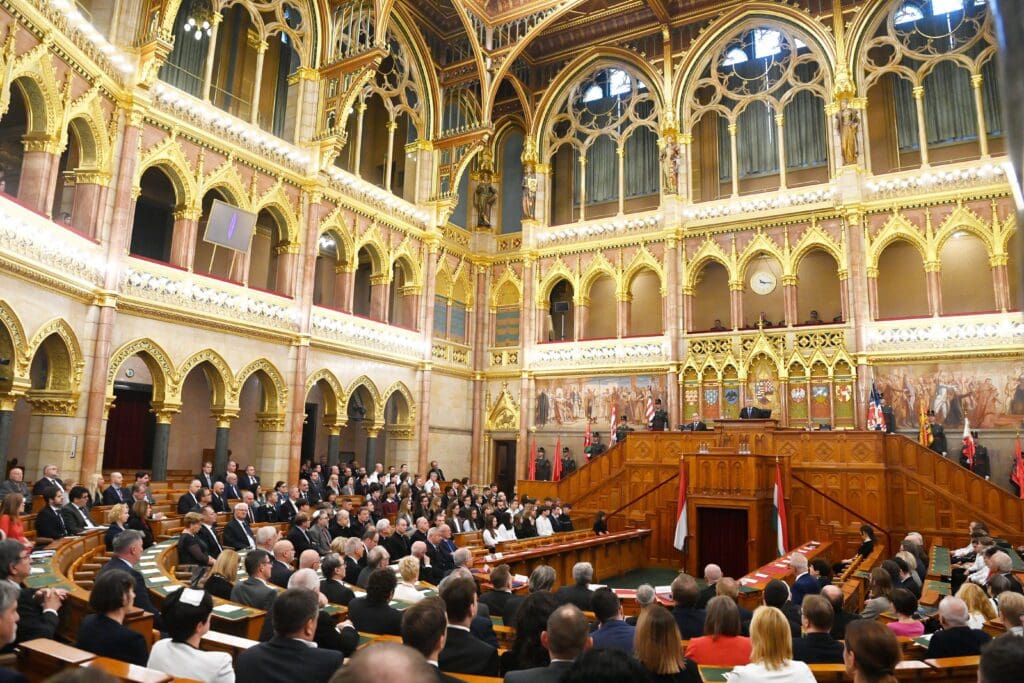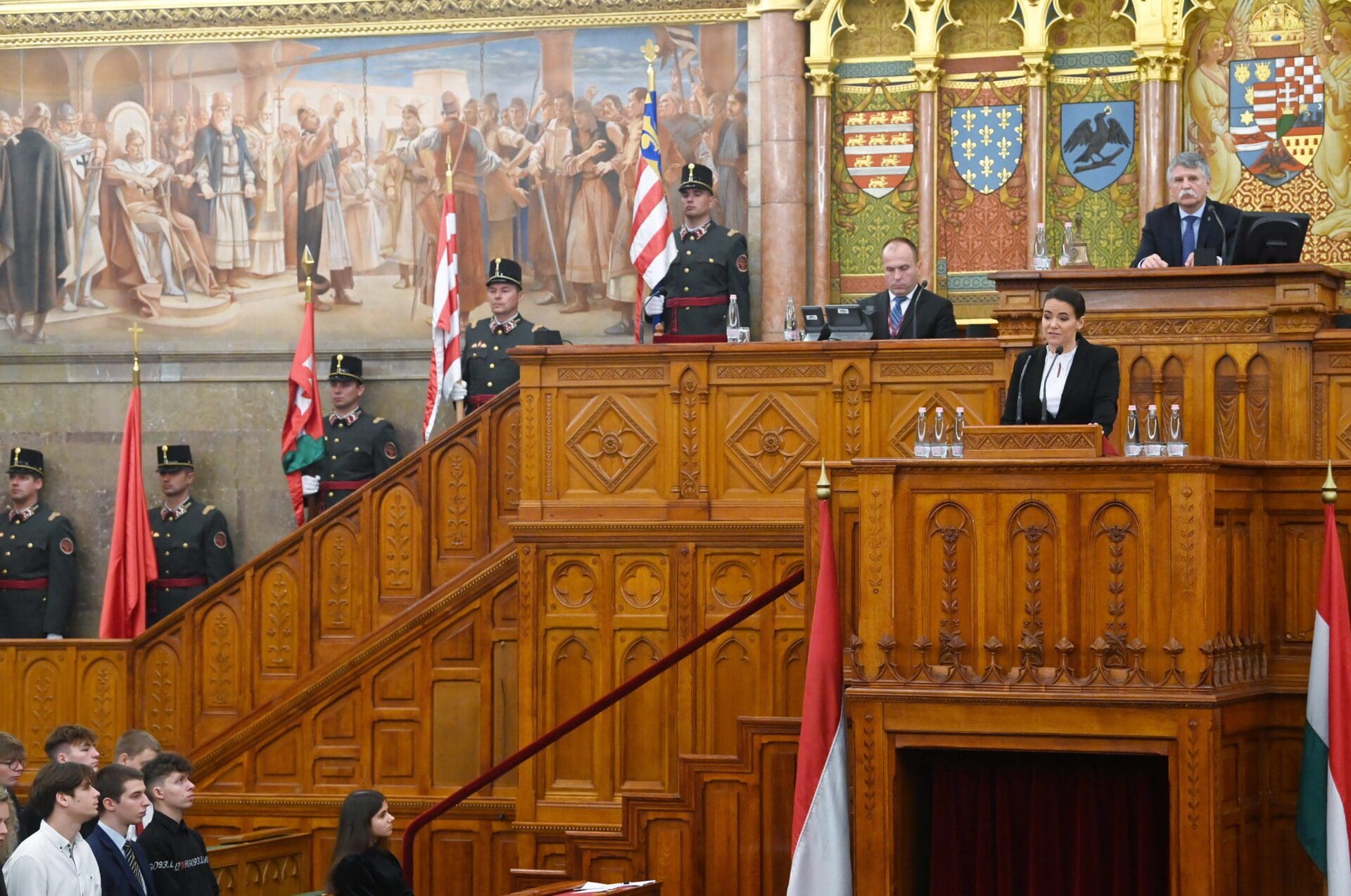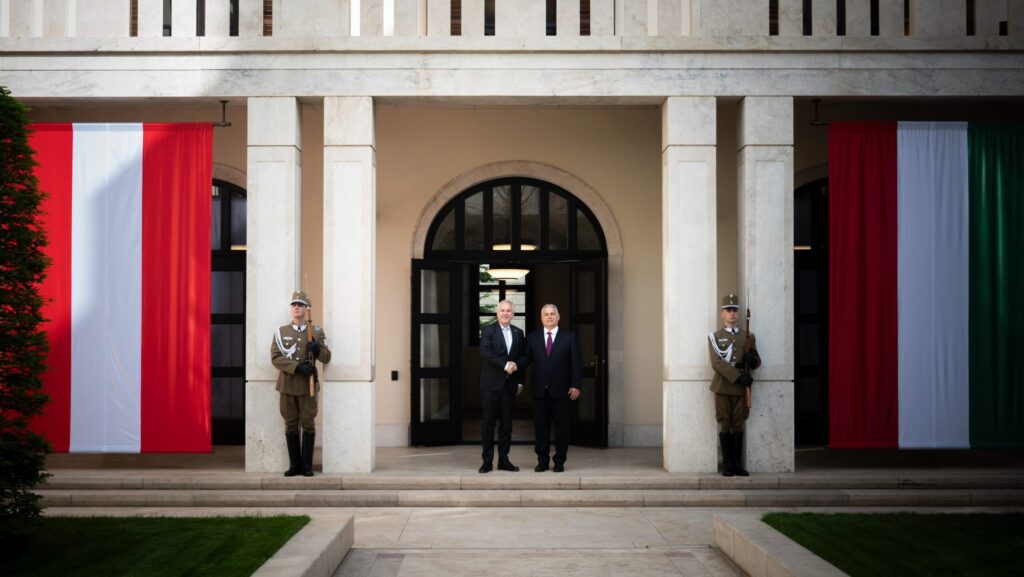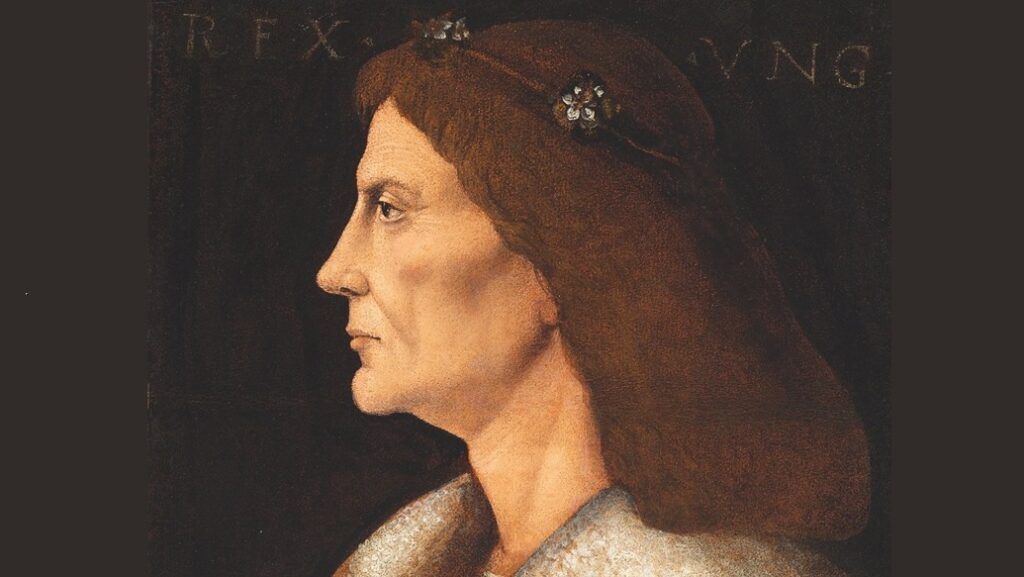On 29 September, the 800th anniversary of the issuing of the Golden Bull was marked by a ceremonial commemorative session in the Hungarian National Assembly. The session was part of a series of programmes organised by the Office of the Parliament in honour of the 1222 document which became the source and origin of the Hungarian historical constitution, and is considered to be the ‘sibling’ of the Magna Charta of England.
President of the Republic Katalin Novák highlighted in her remarks that the Golden Bull became the basis and point of reference for Hungary’s constitutional development. She said the document is ‘a source of confirmation and self-esteem for today’s Hungarians; it strengthens us in the fact that we are worthy of the heritage of our fathers and of the respect of others, it reminds us that we are not the victims of but the writers of the history of Europe.’
The Golden Bull is proof of the historical commitment of Hungarians to freedom and legality, and at the same time it is a symbol of standing up for the priority of the country’s interests, President Novák said.
She recalled that the Golden Bull is the first law in which the monarch consents to the limitation of his rights, ‘a contract between the royal power and the country’, but it is also an important European document of the era, as it proves that in the first centuries of the Hungarian state’s existence ‘it functioned in harmony in most areas of life with other countries of Christian Europe, and was even ahead of many in terms of legal development, principles of freedom and political innovations.’
Rights and duties, freedom and its limits are viable together, because freedom can only have its effect within the limits that protect freedom. Our right in the 21st century is to live Hungarian freedom, and our duty in the 21st century is to protect the spiritual, intellectual and physical borders that protect Hungarian freedom, Katalin Novák emphasised.
In his speech opening the memorial session, House Speaker László Kövér noted that although the original copy of the document has been lost, Hungarians ‘have found the reality of the ideal of the Golden Bull: it is there in the freedom loving of Hungarians, it has been incorporated into the DNA structure of our nation’s constitutional identity.’
The Speaker noted that the Golden Bull, in its historical age, gave a Hungarian answer to the eternal and great issues of freedom, and over the past half century it has become an inevitable point of reference in Hungarian public and constitutional thinking.
László Kövér added: ‘When would it be timelier to remember the Golden Bull than today, when Hungary is fighting for the respect of its right to dissent against Brussels’s plans that are threatening its vital interests?’

President of the Constitutional Court Tamás Sulyok underscored in his speech that the Golden Bull has decisively determined the direction of Hungarian constitutional development, and it is today an outstandingly important part of Hungarian national and constitutional identity. He added that the ‘right to resist’ codified in the Golden Bull has grown into today’s system of judicial guarantees. He stressed that today, when everything is relativised, it is important to preserve the foundations of Hungarian identity.
Zsolt András Varga, President of the Curia, noted that the Golden Bull, which is the first Hungarian piece of legislation to contain detailed provisions regarding the of Curia, is one of the most important achievements of Hungary’s historical constitution. He stated that without an independent, impartial court, there is no country and there is no society. The Curia President also warned that the Hungarian sovereignty struggles are taking place also in the legal field, not only in the political one. Hungary’s constitutional governance and the Holy Crown must be protected and the Golden Bull must be adhered to, he declared.
Fidesz MEP and former justice minister László Trócsányi warned in his presentation that European federalist trends are trying to subordinate national constitutions to EU treaties. He stated that ‘National identity is important; the limit of integration efforts is the national constitution, which must be protected.’
Concluding the commemorative session, László Kövér announced that the National Assembly will perpetuate the memory and significance of the Golden Bull in a law that will designate 24 April as Golden Bull Day.








